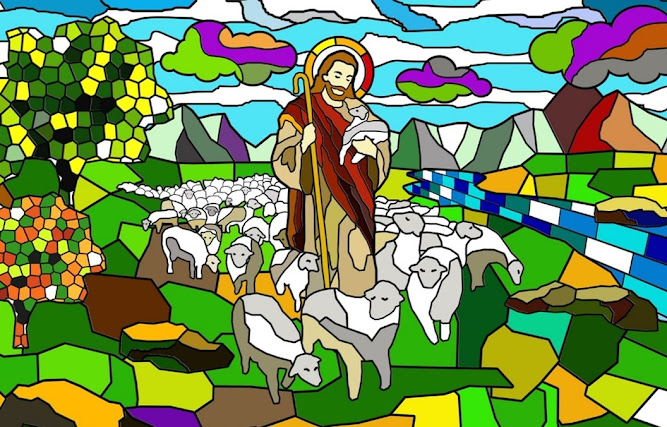2022/08/01
50. Revelation Chapter 15-16
As
discussed in the previous article, if a person dies with the accidental
information attached closely to his will, he becomes an evil spirit and remains
in the world. In the same way, man's will that was too attached to earthly
life, even if it does not become an evil spirit, will also remain in the world
because it cannot follow the Word, "Let there be," returning to God
at the time of his death. This fact is in accordance with the parable in which
Jesus talked about the rich man clothed in purple and fine linen who enjoyed a
lavish life every day and the poor man Lazarus (cf. Luke 16:19-31). They both
died, and Lazarus was taken to Abraham's bosom by angels while the rich man was
tormented in Hades. Abraham gave the reason for this, saying, "Son,
remember that you in your lifetime received your good things, and Laz'arus in
like manner evil things; but now he is comforted here, and you are in anguish."
The Holy Eucharist awaits the cooperation of the faithful to take with Him, one by one, upon His own death, these tormented wills that had died and remained on earth and the wills of those who were evil spirits (cf. this blog № 49). In other words, He is waiting to be received by the congregation. Therefore, when a believer bravely sets out for the Mass, God will
protect the realm of the consciousness of this believer who decided to go to
the Mass. The "temple" mentioned in Revelation as "the temple
was filled with smoke from the glory of God and from his power, and no one
could enter the temple until the seven plagues of the seven angels were ended" (Revelation 15:8) refers to the realm of the
believer's consciousness at this time. So, what are the "seven plagues
of the seven angels" described here? First, we can see that the "one
of the four living creatures" (Revelation 15:7) that gave these angels
the golden bowls full of the wrath of God is the Gospel of John (cf. this blog №12). That is because the phrase in chapter 16, "The seventh angel
poured his bowl into the air, and a loud voice came out of the temple, from the
throne, saying, 'It is done!'" (Revelation
16:17), coincides with the phrase in John's Gospel, "When Jesus had
received the vinegar, he said, 'It is finished'; and he bowed his head and gave
up his spirit" (John 19:30). In addition, this scene of Jesus' death
on the cross is linked to the parable of the Good Shepherd, in which Jesus
repeatedly said that he would lay down his life for his sheep (cf. John
10:1-42). In the Gospel of John, after Jesus entered public life, he had
constant disputes with those who heard him speak. The first of such disputes
happened in the scene of Jesus healing a sick man on the sabbath at a pool
called Beth-za'tha (cf. John 5:1-47), and the Gospel writes this pool is by the
"Sheep Gate." From the description of chapter 10, which begins with
the parable of the sheepfold, we can read the psychological transition of those
who took offence at Jesus' words and eventually tried to kill him. This process
coincides with the "seven plagues of the seven angels" in
Revelation. The words, "seven plagues, which are the last, for with
them the wrath of God is ended" (Revelation 15:1), can be understood
by this coincidence. (continued)
Maria K. M.





